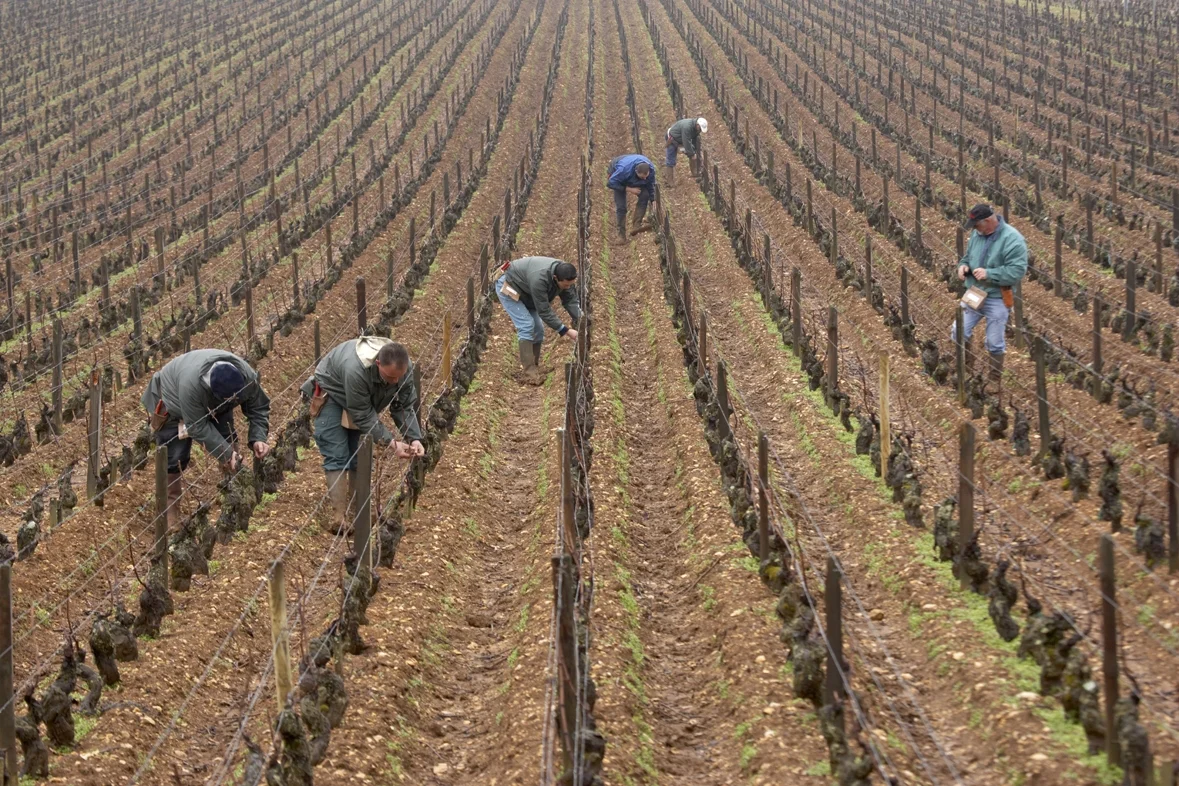Domaine Leflaive
Supplier/Importer: Wilson Daniels
Region: Burgundy, France
Appellations: Côte de Beaune
Founded in 1717, Domaine Leflaive has long been one of the most highly regarded white wine producers in Burgundy. During its respectable history, the domaine has acquired parcels in four of the five Montrachet grand crus and four of the best premier crus. Under the stewardship of Anne-Claude Leflaive, the domaine converted entirely to biodynamic farming practices in the 1990s. Distinguishing Domaine Leflaive beyond the impeccable pedigree of its vineyard sites and biodynamic practices, are the skill and care of its winemaking. The combination of these efforts has produced remarkable results, further elevating the standard for one of the world’s greatest wines.
The roots of the Leflaive family go back to 1717 when Claude Leflaive took up residence in Puligny-Montrachet, intent upon cultivating several acres of vineyards. The domaine, in its present form, was created by Joseph Leflaive between the years of 1910 and 1930, as a result of his successive purchases of vineyards and houses.
Today, the domaine extends over 24 hectares (59.3 acres) in Puligny-Montrachet, of which 4.8 hectares (11.9 acres) are grands crus and 10.8 hectares (26.7 acres) are premiers crus, all growing one varietal: Chardonnay. Since 2004 the domaine has expanded into the Mâconnais and cultivates some 20 hectares 49.4 acres) in Mâcon-Verzé and Solutré-Pouilly.
Domaine Leflaive is one of the pioneers of biodynamic viticulture in Burgundy. After increasing trials at the beginning of the 1990s, conversion has been total since 1996. Biodynamics is a method of cultivation based upon a sensitive understanding of natural phenomenon, taking into account terrestrial and lunar rhythms. It strictly excludes the use of all chemical products. It seeks first to promote the life of the soil and the development of a number of important species. The preparations used in biodynamics allow the vine to reinforce its own immunity by respecting the natural balance of fauna and flora. It provides the organic matter — vegetable, animal and mineral — transformed (horn of manure, horn of silica and other preparations based on wild herbs such as yarrow, chamomile and nettles).
Thus the wines can better express the qualities and particularities of their terroirs. The soils in Puligny-Montrachet are calcareous clay with different percentages of clay and limestone, according to the locations. The soil also includes trace elements: traces of iron, magnesium, boron that assure nourishment to the roots that make a difference to each vine.
In the cellars, the same philosophy of respect presides over the entire vinification process and follows the purest Burgundian tradition: long and natural fermentations in oak barrels in the first year and in stainless steel the second winter. Fermentations are solely from indigenous yeasts. A light bâtonnage (stirring of the lees) is practiced between the end of alcoholic fermentation and beginning of malolactic fermentation. Bottling takes place in the springtime of the second year.
Domaine Leflaive has been entirely a family domaine since its creation. Brice de La Morandière, great grandson of the founder, Joseph Leflaive, represents the fourth generation at the head of the domaine. In 2015, after an international career in industry, he succeeded Anne-Claude, pioneer in biodynamics. It is with the same philosophy of respect for the great terroirs, humility toward the forces of nature, and relentless pursuit of excellence in viticulture and in winemaking that the domaine will continue to grow in the future.


